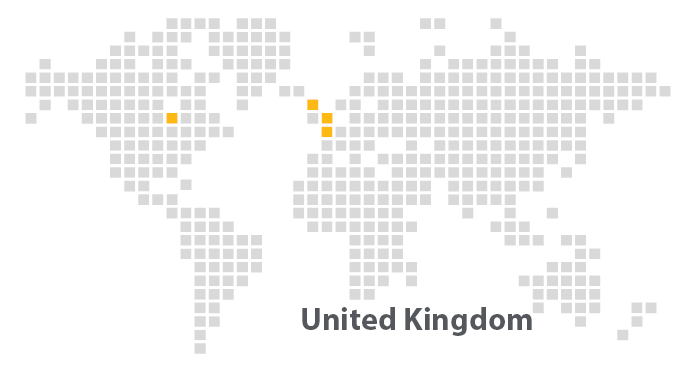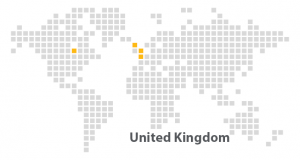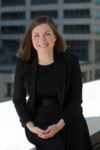In View: United Kingdom
Indiana’s relationship with the UK
Indiana has developed and maintained a strong relationship with the United Kingdom through various cultural and economic ties. In 1999, the city of Fishers established a sister-city relationship with Billericay, Essex. The relationship has flourished since then through Fisher’s annual Renaissance Faire, as they support the sister-city exchange by transforming the city into the Elizabethan town of Billericay. Indianapolis and Northhamptonshire County also share an important bond because of the sister-city program through their mutual interest and economic ties in the motor sports industry.
Nowadays, Hoosier-British relations are further enhanced by the many business partnerships and university exchanges present in Indiana. In December of 2016, then Governor-elect Eric Holcomb led an Indiana delegation to London in support of an international trade mission. Hoosiers and British expatriates also come together to enjoy WYFI’s British Telly Club, enjoying British culture and media.
Geography
The United Kingdom of Great Britain and Northern Ireland
- Commonly referred to as the “U.K.”, the United Kingdom is a country that includes the island of Great Britain (England, Scotland, and Wales), as well as Northern Ireland.
Great Britain
- Great Britain is the island composed of the three autonomous regions of England, Scotland, and Wales.
England
- England is the largest country in Great Britain.
“Two Nations Divided”
Linguistically, the United States of America and the United Kingdom have been described as “two nations divided by a common language”. Both countries share English as a commonly-spoken language, but the vocabulary used in each nation has evolved over the years to present various nuances. For example, Britons call the front of a car the bonnet, while Americans call it the hood. Additional examples of vocabulary differences include:
| American English | British English |
| Nice to meet you. | How do you do? |
| (phrase) To begin a discussion | To table a discussion |
| Thanks | Cheers * |
| Pleasant | Homely |
| Bucks*($) | Quid*(£) |
| Elevator | Lift |
| Bathroom/Restroom | Toilet/loo*/WC |
| Flashlight | Torch |
| French fries | Chips |
| Potato chips | Crisps |
| Pants | Trousers |
| Underwear | Pants |
| Line | Queue |
| Argument | Row (rhymes with “wow”) |
| Guy | Bloke/chap* |
| Woman | Bird* |
| *slang/colloquial terms | |
The Royal Family
Who is the reigning monarch? Who is next in line for the throne?
Queen Elizabeth II has been Queen of the United Kingdom and the Commonwealth Territories since 1952. She has ruled longer than any other monarch in British history, ascending the throne soon after her father’s death. Her eldest son, Charles, is next in line for the throne, and currently possesses the title of the Prince of Wales. Over the years, many British citizens have speculated the rise of Prince William, Charles’s son, as heir because of the Prince of Wales’ controversial past and aging status. While this seems to be a coveted topic by most British gossip magazines, the probability of this happening is very slim, as it would break royal protocol.
What is the meaning of the royal titles?
Prince/Princess: Prince of Wales, Charles
This is hereditary title for a close relative of the monarch. This is commonly used for the Queen’s sons and daughters.
Duke/Duchess: Duke of Cambridge, William
This a member of nobility who tends to rule over a duchy territory. It is the highest rank below the monarch. It may be interchangeable with the titles “Prince” or “Princess”.
Marquess/Marchioness: Marquess of Winchester, Nigel George Paulet
This is a nobleman or woman of hereditary rank that possesses land called a “march”.
Earl/Countess: Earl of Wessex, Edward
This is a member of the noble ranks, standing below a marquess, but above a viscount.
Viscount/Viscountess: 19th Viscount Hereford. Robin Devereux
This is a title symbolizing royal-middling rank, and is given to nobles of various statuses.
Baron/Baroness: 3rd Baron Margadale, Alastair John Morrison
This is a noble of the lowest order of British nobility. In the U.K., barons are usually referred to as “Lord”.
What is the role of the royal family in the U.K. today?
As the United Kingdom is a constitutional monarchy, the Queen is the ceremonial head of state. She does not make executive decisions, but the monarch has the power to dismiss and appoint the British Prime Minister, gives royal assent to every act of the UK Parliament, and holds weekly meetings with the Prime Minister.
In an official statement by the Royal Family, they state that: “Members of the Royal Family support The Queen in her many State and national duties, as well as carrying out important work in the areas of public and charitable service, and helping to strengthen national unity and stability”.
What is public opinion on the royal family?
Overall, the monarchy is quite popular, as 75 percent of British citizens believe that the monarchy has an important role in the U.K.’s future. This is according to a telephone survey conducted by Ipsos MORI that was published in April of 2016.
Attend the United Kingdom workshop on Friday, March 17
for the first event in our 2017 Cross-Cultural Communication Workshop series. This workshop will feature speakers from The International Center to cover appropriate etiquette, protocol and cross cultural communication when in the United Kingdom or working with British colleagues.
Have you experienced British culture? We would love to hear about your story. Share it with us!
By Chiara Evelti, Protocol and International Visitors Program Intern


 Join The International Center on Friday, March 17
Join The International Center on Friday, March 17
